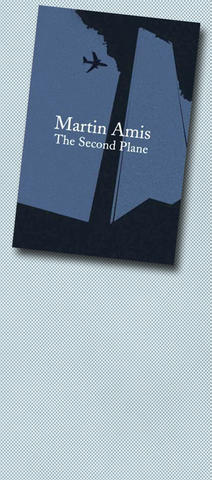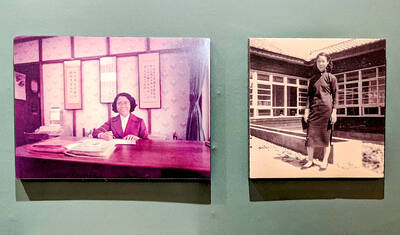Last month, speaking to Terry Eagleton about his "feud" with Martin Amis over the proper response of the liberal left to Islamist terrorism, I asked the professor whether he considered Amis a worthy debating opponent. He replied: "I have no idea why we should listen to novelists on these matters any more than we should listen to window cleaners."
Among its many ambitions this book wants to put him right. As well as being a collection of the dozen or so pieces - essays, short stories, reportage - Amis has written in response to the events of Sept. 11 and to the war on terror, it is an argument for why a novelist's voice should be privileged on these subjects. In his introduction to the collection, Amis makes part of his case: "If September 11 had to happen, then I am not at all sorry that it happened in my lifetime ... . Geopolitics may not be my natural subject, but masculinity is. And have we ever seen the male idea in such outrageous garb as the robes, combat fatigues, suits and ties, jeans, tracksuits and medics' smocks of the Islamic radical?"
Amis has a need to lay claim to big subjects in this manner - in the past he has sought to make the holocaust and the gulags part of his "natural" territory of warped masculinity too; in each case, in Time's Arrow and Koba the Dread, he risked reimagining the extremes of historical horror with his full ironist's swagger. Few writers have put comparable effort into offering neologisms for torture techniques; Amis did so in the belief that language must be fully alive for us to comprehend the banality of industrialized death.

In this sense suicidal al-Qaeda, alongside its other more visceral threats to our lives, presented a literary challenge. In the second of the essays here, The Voice of the Lonely Crowd, Amis argues that one of the first casualties of "The Long War" after Sept. 11 was the Western literary imagination in general, and his own in particular. "After a couple of hours at their desks, on September 12," Amis wrote, "all writers on earth were considering the course that Lenin urged on Maxim Gorky: A change of occupation." They had been outflanked. As Don DeLillo pointed out, in another context, "there is a deep narrative structure to terrorist acts and they infiltrate and alter consciousness in ways that writers used to aspire to."
Amis' instinct was to attempt to reclaim some of that power. In his case, the writer's block lasted a short week (several other novelists got over it even sooner). He then set himself the task of finding a language that could describe the "worldflash of a coming future," the "horrorism," the "self-besplatterment" of Islamic terrorism. In his view, this rhetorical ownership was not only a necessary effort, but also a moral one. One of the arguments that runs through this book is that barbarism is all but indistinguishable from religion and that the opposite of religious belief is not atheism, but independence of mind. The highest expression of independent minds in western enlightened culture is, to Amis, its literary fiction ("reason at play"). His personal struggle against the "dependent mind" of Islam is thus fought on the level of playful language.
For all the verbal thrill of much of this engagement - more than enough to make it essential reading even for Terry Eagleton - there is an undeniable hubris at the heart of it. In equating human value to literary value, Amis finds a way not only to place himself on the frontline of the struggle against the forces of darkness, he also comes close to dismissing half the world as morally inferior and psychologically backward without visiting any of it or hearing from any of its citizens. There is an unhesitating "us" and "them" in Amis' characterization of the current situation, and while we in the west are individuated, they, over there, seldom are.
The most sustained attempt he offers to comprehend the forces ranged against the west comes in his story The Last Days of Muhammad Atta. Atta, the pilot of the first plane to hit the towers, comes across in part as a familiar Amis type, the hopeless male, plagued by his bowels and by his repressed sexuality; he believes he will be relieved in the moment of death. "This was what was possible when you turned the tides of life around, when you ran with the beasts, when you flew with the flies ... Now even the need to shit felt right and good as his destination surged towards him." In the context of this story - and the other bleakly comic fictional monologue of a psychotic dictator's body double - it is curious how, elsewhere, Amis is so much concerned with propriety of tone. There is a long argument about the inappropriateness of the contraction "9/11" to describe the enormity of that day. Paul Greengrass' film United 93 is rebuked at one point for departing from the documentary record, for becoming "artistic." And in the best of the pieces here, Amis' eyewitness account of the valediction tour of Tony Blair, he finds the Prime Minister floundering as he addresses the troops in Baghdad: "So we kill more of them than they kill us."
"He was quite unable," Amis writes of Blair, "to find weight of voice, to find decorum, the appropriate words for the appropriate mood." In placing these pieces side by side, shifting as they do from apocalyptic solemnity to cultural in-joking, Amis sometimes invites against himself the same censure. His writing remains capable of anything, except perhaps humility.

Following the shock complete failure of all the recall votes against Chinese Nationalist Party (KMT) lawmakers on July 26, pan-blue supporters and the Chinese Communist Party (CCP) were giddy with victory. A notable exception was KMT Chairman Eric Chu (朱立倫), who knew better. At a press conference on July 29, he bowed deeply in gratitude to the voters and said the recalls were “not about which party won or lost, but were a great victory for the Taiwanese voters.” The entire recall process was a disaster for both the KMT and the Democratic Progressive Party (DPP). The only bright spot for

Water management is one of the most powerful forces shaping modern Taiwan’s landscapes and politics. Many of Taiwan’s township and county boundaries are defined by watersheds. The current course of the mighty Jhuoshuei River (濁水溪) was largely established by Japanese embankment building during the 1918-1923 period. Taoyuan is dotted with ponds constructed by settlers from China during the Qing period. Countless local civic actions have been driven by opposition to water projects. Last week something like 2,600mm of rain fell on southern Taiwan in seven days, peaking at over 2,800mm in Duona (多納) in Kaohsiung’s Maolin District (茂林), according to

Aug. 11 to Aug. 17 Those who never heard of architect Hsiu Tse-lan (修澤蘭) must have seen her work — on the reverse of the NT$100 bill is the Yangmingshan Zhongshan Hall (陽明山中山樓). Then-president Chiang Kai-shek (蔣介石) reportedly hand-picked her for the job and gave her just 13 months to complete it in time for the centennial of Republic of China founder Sun Yat-sen’s birth on Nov. 12, 1966. Another landmark project is Garden City (花園新城) in New Taipei City’s Sindian District (新店) — Taiwan’s first mountainside planned community, which Hsiu initiated in 1968. She was involved in every stage, from selecting

As last month dawned, the Democratic Progressive Party (DPP) was in a good position. The recall campaigns had strong momentum, polling showed many Chinese Nationalist Party (KMT) lawmakers at risk of recall and even the KMT was bracing for losing seats while facing a tsunami of voter fraud investigations. Polling pointed to some of the recalls being a lock for victory. Though in most districts the majority was against recalling their lawmaker, among voters “definitely” planning to vote, there were double-digit margins in favor of recall in at least five districts, with three districts near or above 20 percent in